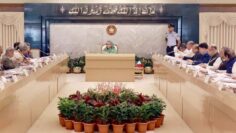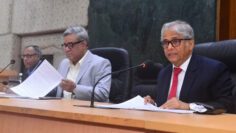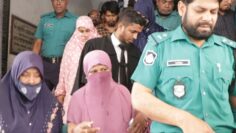Australia find unlawful killing evidence in Afghanistan
The Australian military authority have founded the evidence of unlawful killings of unarmed commoner in Afghanistan. Australian troops unlawfully killed 39 civilians and prisoners in Afghanistan over an 11-year period.
The country’s military said Thursday, offering an extraordinary public accounting of abuses that often remain hidden in distant war zones.
The killings were the result of a “distorted culture” and “toxic competitiveness” that took root among some of Australia’s most elite soldiers as they prepared to join US forces in Afghanistan, according to a report by the inspector general of the Australian Defence Force.
It paints a damning portrait of a cavalier and deceitful atmosphere in which commanders ordered junior soldiers to shoot prisoners so that they could record their first “kill,” then invented cover stories to deflect scrutiny.
The inspector general said that all 39 killings, including of adolescents and noncombatants like farmers, had taken place in circumstances that were clearly outside the “heat of battle.” The report stopped short of calling the killings war crimes, but it recommended that 19 soldiers be referred to the police for criminal investigation and that the Australian government pay compensation to the families of the Afghan victims.
Before the report’s release, Prime Minister Scott Morrison wrote to Afghanistan’s government Wednesday to express his “deepest sorrow” over the troops’ misconduct. On Thursday, the Australian defence chief, Gen Angus Campbell, who said he accepted the findings of the four-year inquiry, called the episodes described in the report “deeply disturbing” and “unreservedly” apologised to the Afghan people.
“Today, the Australian Defence Force is rightly held to account for allegations of grave misconduct,” he said as he announced the findings.
Campbell said that a “self-centered warrior culture,” fostered by commanders within the army’s elite Special Air Service Regiment, had eroded military discipline on the battlefield.
“It’s alleged that some patrols took the law into their own hands, rules were broken, stories concocted, lies told and prisoners killed,” he said. “Those who wished to speak up were allegedly discouraged, intimidated and discredited.”
Australia is not the only country where troops have been accused of unlawful killings in Afghanistan, with investigations also undertaken in the United States, Britain and New Zealand. In some cases, those inquiries have examined actions only at individual levels, where the insular nature of elite troops can make it hard to gather facts.
John Blaxland, a defence expert at the Australian National University, said that the scope of Australia’s inquiry was unprecedented, given that it did not simply look at specific units but also addressed more broadly the military hierarchy and the nation’s approach to defence strategy.


![Private: [ID: e2Xn3YlVb-s] Youtube Automatic](https://www.pbc24.com/wp-content/uploads/2021/11/private-id-e2xn3ylvb-s-youtube-a-60x60.jpg)
![Private: [ID: Q7Q-kwEDXjg] Youtube Automatic](https://www.pbc24.com/wp-content/uploads/2021/12/private-id-q7q-kwedxjg-youtube-a-60x60.jpg)
















